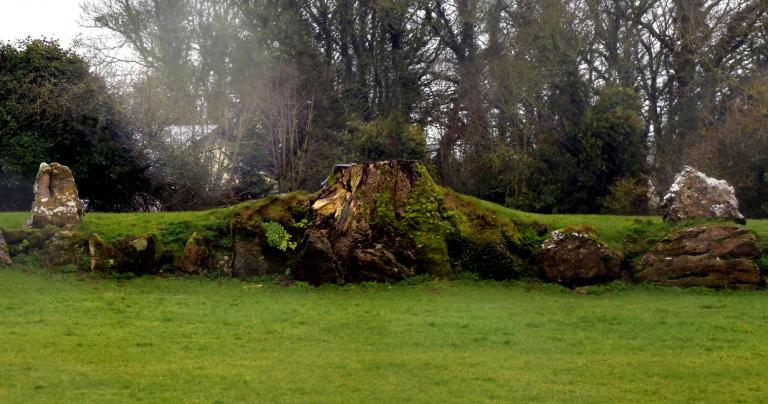Last week Morgan Daimler had a great post on the Agora blog titled Be Your Own Spiritual Leader. Morgan discussed the necessity of mundane leadership in Pagan groups, and the value of teachers, guides, and mentors. But the main point of the post was that there are serious dangers in giving your spiritual autonomy to someone else. Here’s a key quote:
Ultimately I think we must all become our own spiritual leaders … You don’t need any other human to mediate your spirituality. You can find everything you need yourself, if you look.
I’m in strong agreement with this post. My only caveat is that I see too many people who assume that “you don’t need any other human to mediate your spirituality” means “anything I come up with is good and right.” If it works for you, have at it – but don’t try to convince me that the Morrigan is a sex goddess.
I’m a public Pagan, a blogger, and a published author. People sometimes invest me with more authority than I have – and more than I want. Even when my writing takes the tone of a Pagan revival preacher, I try to be clear that these are my experiences and the conclusions I’ve drawn from them. If you find them helpful, I hope you’ll join me. If you don’t, I hope you find the path that calls to you. Different doesn’t mean wrong.
I do the same thing with other Pagans. If what you say makes sense I’ll give it serious consideration. If you convince me I’m wrong I’ll change my beliefs and practices – getting closer to “right” is more important than pretending I’m already there. And conversely, I don’t care who you are or how many books you’ve published – if I’m not convinced I’m not buying it.
Giving anyone spiritual authority is dangerous. But sometimes it’s necessary, and that’s what I want to talk about today.
Oracular religion
I sometimes describe myself as an ancestral, devotional, ecstatic, oracular, magical, public, Pagan polytheist. For this post, the key term is oracular – meaning the Gods speak to us. Sometimes They speak in signs and omens, sometimes in divination, sometimes through thoughts in your head that you know aren’t yours.
And sometimes a deity will take over a person and use their body to verbally deliver a message.
In most cases, these pronouncements are treated as UPG – unverified personal gnosis. They are authoritative only for the person who receives them. The rest of us are free to accept them, reject them, or hold them for further consideration as we see fit. That’s simple enough.
But the polytheist religions we are reconstructing – and in some cases, building from scratch – are not only a human endeavor. Our Gods are also participating in their construction. And many times what They have to say is intended for more than the person who serves as the oracle.
Now things get complicated.
Bound together by messages from our Gods
The English word “religion” comes from the Latin religare meaning “to bind together.” If we are building a religious tradition (as opposed to a magical tradition or an academic tradition) there must be something that binds us together. Typically those are common beliefs and/or common practices. For polytheists there is nothing more central than our Gods.
I am not saying that all polytheists practice an oracular religion – many do not. But for those of us who do, the messages we receive from our Gods are of tremendous importance. These messages are rarely concerned with trivial matters. They call us to action, usually with more than a bit of urgency. And they are frequently mysterious, requiring interpretation.
Some of them come through ourselves. But others come through other people – not random strangers on the internet, but people who are our co-religionists, our circle mates, and our friends.
How much authority do we give messages that come through other humans?
Getting it right is a terrifying obligation
I’ve stood in a circle where an oracle spoke on behalf of a deity. I’ve been the oracle. I’m not sure which one is scarier.
I’ve never felt threatened. But I’ve always known I was in the presence of something holy, of Someone bigger and stronger and wiser than me. It’s like floating down a raging river, caught up in Purpose and Will and Power, hoping you can get through the rapids without being smashed on the rocks.
And when you finally make it to the calmer waters, you try to remember as much as you can, and start figuring out what you’re supposed to do with it.
That’s how it’s supposed to work. For me, that’s how it usually works. But what if this is your first time hearing strange words coming out of your friend’s mouth? What if you’re still not sure how real the whole God-speaking thing is? What if you weren’t there, but someone says “Brighid had a message for you”?
How much do you trust the oracle to get it right?
Building an oracular framework
“Everybody just do their own thing” may work for some religions and spiritualities. It won’t work for oracular-driven polytheism. Someday I hope we’ll have oracular institutions that can develop best practices and teach them to beginners. For now, we need to develop an oracular framework.
This begins with a polytheist worldview: there are many Gods, who are external to humans, each with Their own sovereignty, agency, and will.
It means developing close devotional relationships with the deities who work with the group. If you want the Gods to talk to you, start by talking to Them.
It means studying Their lore, so we learn about Their personalities and characters and we can more readily recognize Their words when we hear them.
It means knowing ourselves, so we can more readily recognize thoughts and words that are not our own.
This post is not intended to be a how-to on oracular work and divine possession. That would require a book, or several books. But if we are going to accept the spiritual authority of oracular pronouncements – and I believe we must – we need an agreed-upon framework for their reception and interpretation.
Trust the oracle… or not
I am not a trusting person. I want evidence and reason. I want credible sources. I want a track record of getting it right.
[Note to any atheist readers: read Facts and Reason in Paganism – Avoiding Materialist Assumptions before commenting. Pay particular attention to the warning at the very end.]
This kind of trust is best developed in face to face workings. It’s one thing if you tell me “the Morrigan told me this.” It’s a very different thing if we’re both in the same circle and I hear the same voice delivering the same words.
When people have shown themselves to be knowledgeable about a particular deity and culture, and respectful of them, I give their words great credence. If Morgan Daimler tells me a Fairy Queen said this or that I’m going to believe it. If someone I just friended on Facebook says it, I’m going to be very skeptical.
The words of the oracle are authoritative – their interpretation is not
This is the truth of any religious experience: what happened, happened. You saw what you saw. You heard what you heard. The experience is 100% real. That’s the easy part, or at least it would be easy if our mainstream culture didn’t try to insist we made it all up because it breaks their model of reality.
The hard part is figuring out what it means.
So if I’m participating in an oracular ritual, and the Morrigan uses the voice of one of the participants to say “Tell him to do Brighid’s work before I come for him,” and it takes place within a framework that we’ve used successfully in the past, and I have no reason to question the ability or the integrity of the oracle, then those words are authoritative and I had better pay attention to them.
This isn’t a hypothetical case – it happened pretty much exactly this way in 2015. But the interpretation was still up to me. I interpreted it as saying I needed to finish what would become The Path of Paganism and I needed to do it quickly, and that if I didn’t there would be serious consequences.
And so I did.
Many times the Gods do not speak in words, especially when They’re speaking through omens and through divination. Instead, They speak in concepts, images, and feelings. Those are very difficult messages to relay. When I’m the messenger, I do my best to tell the whole truth (even when it’s unpleasant) but also to communicate my level of uncertainty with the words I’m using. In this case, it is the concept that is authoritative, not the words I use to express it.
Why we must accept the spiritual authority of oracles
Obviously, if you are not part of an oracular tradition, you have no obligation to accept the authority of any oracle or the messages they relay.
But in the case of a group (formal or informal) working with the same Gods and spirits in the same spiritual paradigm, the expectation that everyone will accept the received gnosis is strong. I think that’s necessary in order to build a tradition of ecstatic communion and communication between us and Them.
And at the same time, the problems Morgan Daimler warned us about in Be Your Own Spiritual Leader are real. We who are called to build or rebuild polytheist religions where the Gods actively speak to us must find a way to deal with these problems.
Build an oracular framework. Train oracles, particularly those who exhibit an aptitude for such work. Learn who you can trust, and when you do, trust their words.
Ultimately, you must decide what those words mean.
And when you decide, act on them like the holy mandates they are.



















